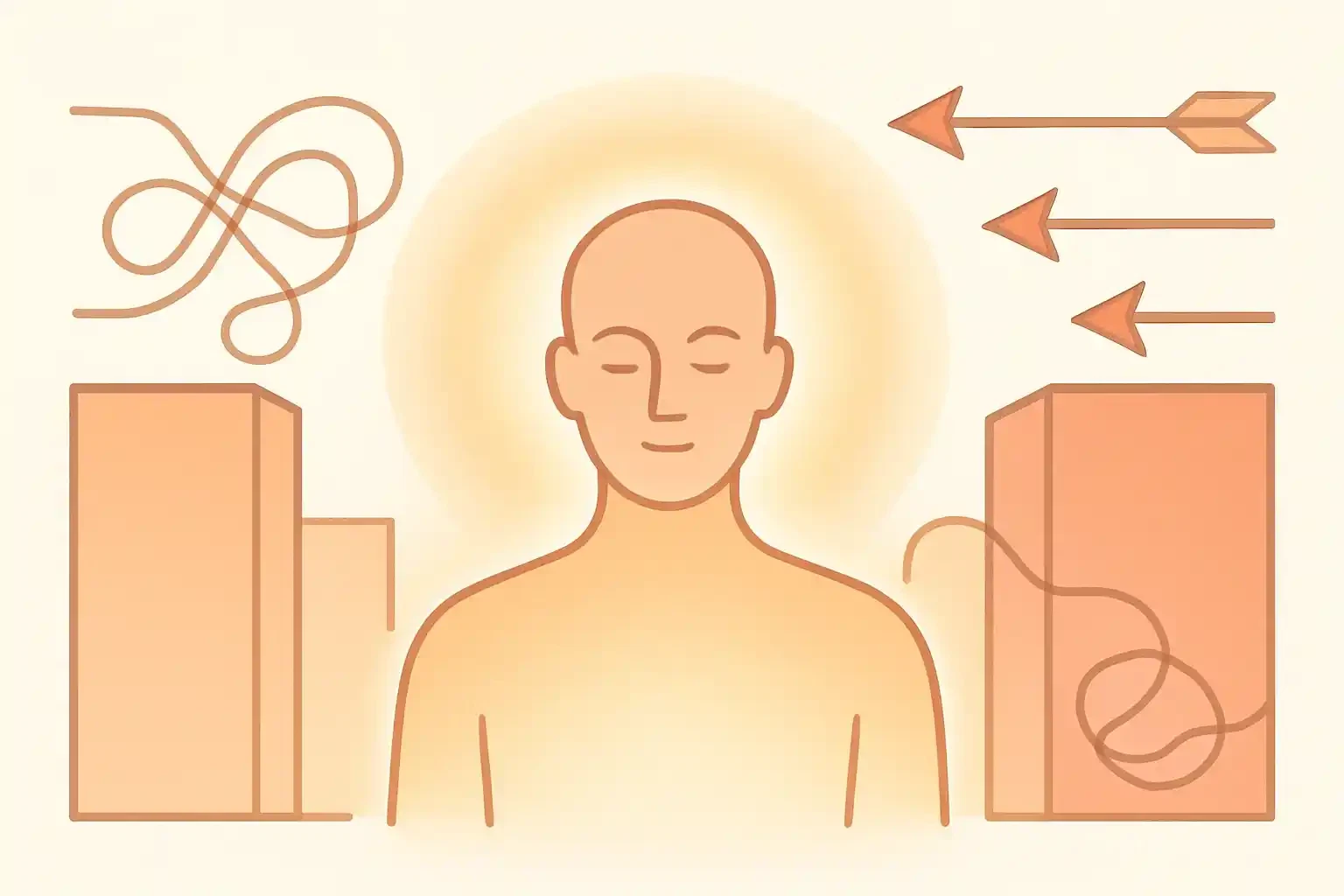
Frustration and Blocked Goals
When our expectations aren't met or goals are blocked, frustration can escalate into anger — especially when we feel powerless.
Channel intense energy into centered calm through breathwork, grounding asanas, and meditative focus. Learn to pause, reset, and respond with clarity.

Anger is a natural human emotion that arises in response to perceived threats, frustration, injustice, or hurt. While anger serves important functions - alerting us to problems and motivating protective action - chronic or poorly managed anger can damage relationships, impair judgment, and negatively impact physical and mental health. Anger manifests through physiological changes including increased heart rate, muscle tension, elevated stress hormones, and heightened energy. The key to healthy anger management lies not in suppressing this emotion, but in developing awareness, emotional regulation skills, and constructive expression. Yoga for anger management offers powerful tools including breathwork, mindful movement, and meditation that help transform reactive anger into conscious, purposeful responses.

When our expectations aren't met or goals are blocked, frustration can escalate into anger — especially when we feel powerless.

High stress, chronic overwhelm, or exhaustion lowers tolerance for challenges, making us more reactive to triggers.

Mistreatment, criticism, or boundary violations often trigger anger as a protective response.

Unhealed trauma and unresolved conflicts create sensitivity that amplifies present frustrations.
Channel intense energy into centered calm through breathwork, grounding asanas, and meditative focus. Learn to pause, reset, and respond with clarity.

When anger begins to rise, immediately engage in deep, slow breathing — try the 4-7-8 technique (inhale for 4, hold for 7, exhale for 8). This activates the parasympathetic nervous system and creates space between trigger and response.
Identify your personal anger triggers and notice early warning signs like muscle tension, increased heart rate, or irritability. Early recognition allows you to intervene before escalation.
Daily practices like yoga, meditation, or nature walks reduce baseline stress and increase resilience, preventing anger buildup.
Express feelings assertively but respectfully using 'I' statements, active listening, and empathy. Good communication transforms conflicts into solutions.
Anger is an emotion, but when unchecked, it can impact your health, bonds, and well-being. Yoga offers a holistic approach through mindful breathing, postures, and meditation to calm the nervous system, release tension, and cultivate patience. Over time, regular yoga practice enhances self-awareness, resilience, and positivity — making it easier to remain calm in difficult situations.
Explore timeless wisdom on health, wellness, yoga, and more — all in one place.

Yoga Instructor

Meditation Enthusiast

Wellness Coach

Yoga Instructor

Meditation Enthusiast

Wellness Coach
